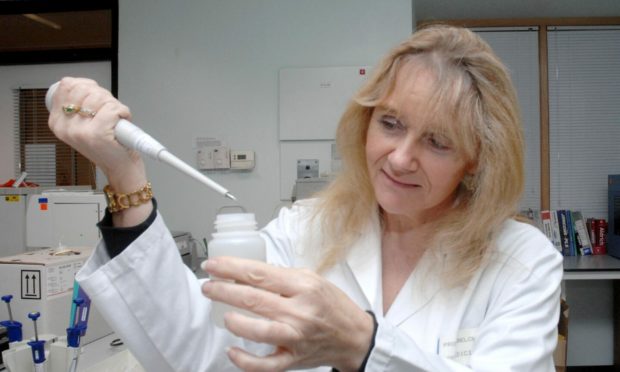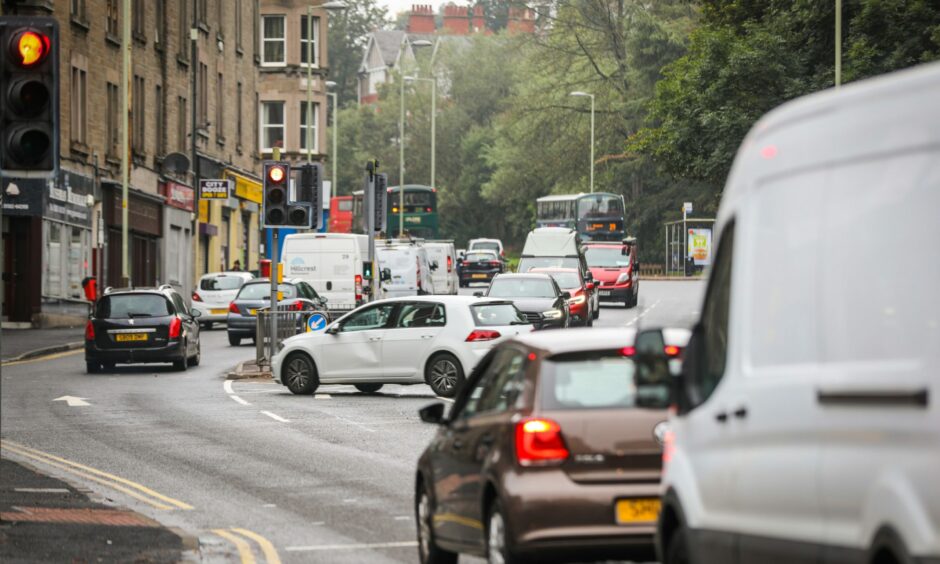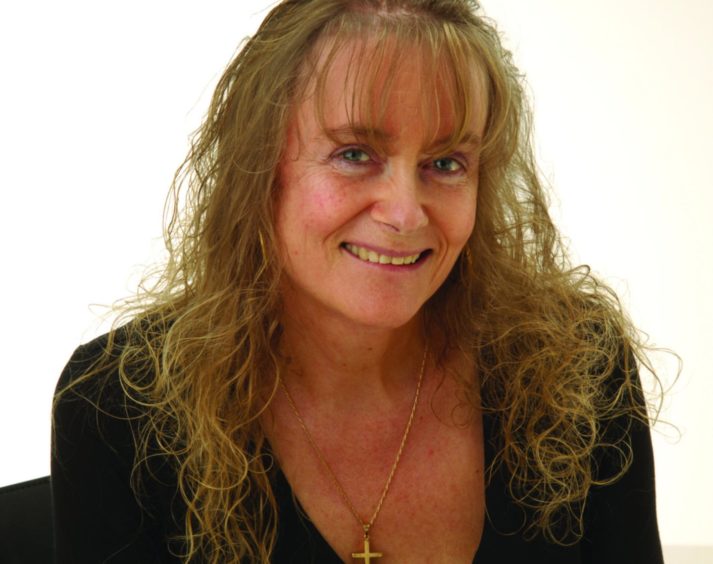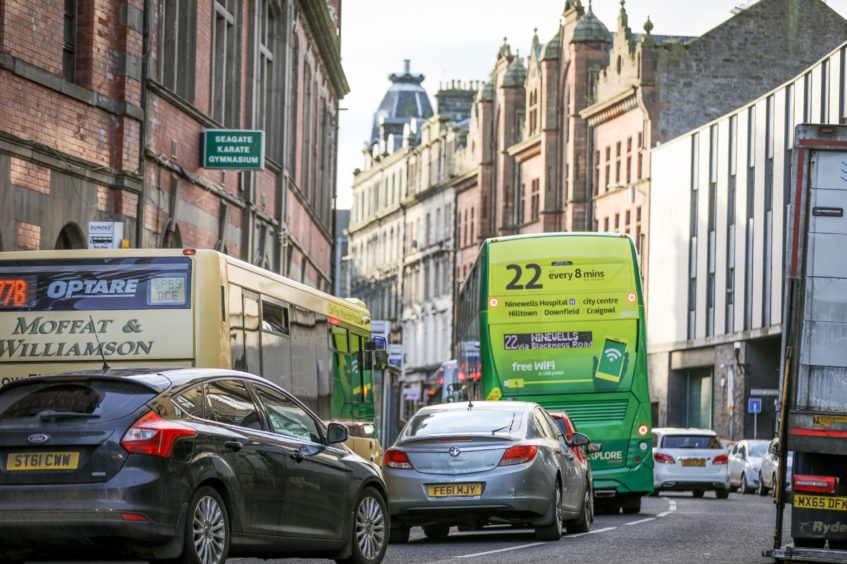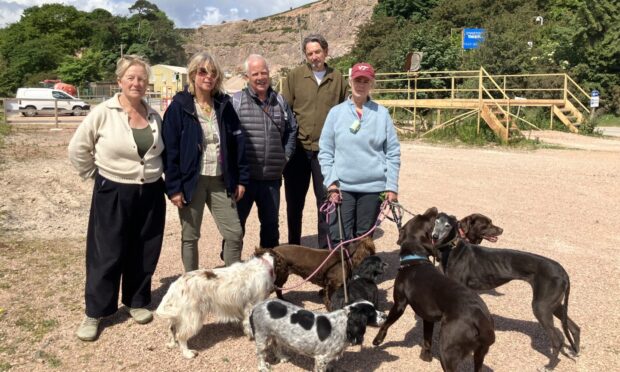Dundee professor Jill Belch has warned of the dangers of air pollution, saying the “silent killer” accounts for thousands of hospital admissions in Tayside a year.
On World Car Free Day, which encourages drivers to give up their vehicle for a day, the professor of vascular medicine at Dundee University has spoken about the dangers of living in polluted areas.
In Dundee, an action plan has been drawn up to improve air quality along Lochee Road — one of the city’s most congested streets and one of the worst in Scotland.
In Perth, cycle campaigners have said people avoid Atholl Street because of pollution levels. Council officials considered introducing a low emission zone in the city centre. Air readings found pollution levels to be within acceptable limits, so the plans were dropped.
Appin Crescent, in Dunfermline, has also been identified as problematic, although recently Sepa declared air quality there had improved to acceptable levels recently.
Recent research by Professor Belch found that if air quality was kept within global guidelines, there would be 7,607 fewer hospital admissions at Ninewells and Perth Royal Infirmary each year.
It really is a silent killer.”
Professor Jill Belch on air pollution
Professor Belch, who was awarded Scotwoman of the year in 202o for her campaign protecting care staff during the pandemic, also said health implications for those breathing in fumes range from heart disease to babies being born with smaller heads.
Air pollution contributes to as many as 36,000 deaths a year in the UK.
What do I do if I need my car?
Professor Belch, who lives in Scone, said that most car journeys are shorter than three miles.
“If you could walk a couple of miles a day, not only are you playing your part in improving air quality, but you are also improving your own health. It’s win win.
“Obviously for those longer journeys, people will need cars, but even then they should consider public transport — at least when coronavirus isn’t as much of a concern.”
Professor Belch said the “vast majority” of pollution in towns and cities is caused by traffic.
Make sure you leave the car at home TOMORROW for World Car Free Day! 🚗
Join in for #ClimateFringeWeek with people from around the world as they cycle, walk and take public transport instead of driving! 🙌 🚶♂️
Find out more ⬇️https://t.co/8DpX4p6Vk7 pic.twitter.com/4k7EDVGr53
— The Climate Fringe 🌍 (@ClimateFringe) September 21, 2021
And drivers are affected too.
“There’s this idea that pollution is something that is happening outside, but it’s not that simple.
“In your car you are highly exposed.
“Even in electric cars there are issues with dust from brake pads. Though they are better than petrol and diesel cars of course.”
What are the solutions?
The Dundee professor hopes that people take air pollution seriously and play their part in improving matters.
“I would urge everyone to ditch their car,” she said.
Promoting active travel, such as walking and cycling, are among the key ways people can make a difference.
“That can not only improve air quality, but quality of life as well.”
Planning officials can also play a part in tackling the issue.
“Big road developments have to be moved away from people and homes,” Professor Belch adds.
What effects can air pollution have?
The impact of living in polluted areas are many and varied, according to the Dundee professor.
She said: “Babies are born with smaller heads in areas with bad levels of pollution.
“Cognitive development is hindered.
“It really is a silent killer.”
Other health impacts include an increased risk of blood clots and respiratory conditions.
An injustice over who is most affected irks Professor Belch.
“It’s people who live in more polluted areas and don’t tend to have a car, but are living with the consequences.”
Is noise pollution an ‘ignored killer’?
Professor Belch, who was awarded an OBE in 2015 for her work, said an often overlooked but similar plight is noise pollution.
There is often an overlap in areas with poor air quality because of the noise from combustible engines.
“Noise pollution can affect mental health and contribute to dementia.
“Silent killer isn’t the right phrase for that. But it isn’t talked about a lot so it is an ignored killer.”
Why did Professor Belch win Scotswoman of the year?
Professor Belch was made the 58th Glasgow Times Scotswoman of the Year in 2020 for her work protecting NHS staff during the coronavirus pandemic.
She set up Masks for Scotland, which raised almost £440,000 and delivered more than one million pieces of PPE to workers in care homes and GPs.
Glasgow Times editor Callum Baird described Professor Belch as an “inspiration”.
